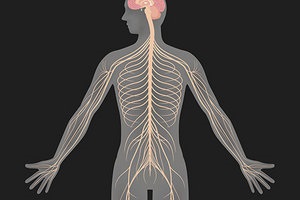
October is National Dysautonomia Awareness Month. Dysautonomia is an umbrella term that describes the breakdown of the Autonomic Nervous System which controls many of the body’s daily involuntary functions. Examples of these functions include regulation of heart rate, body temperature, bowel, and bladder functions.
Over 70 million people worldwide suffer from 15 known forms of dysautonomia, the most common being postural orthostatic tachycardia syndrome [POTS]. Sufferers of the different forms of dysautonomia can experience symptoms such as dizziness, lightheadedness, and fainting. These are just examples of the symptoms that could be experienced, symptoms vary depending on the severity of the patient’s condition.
The most common group affected by dysautonomia are women from ages 12-15, meaning patients could be diagnosed as early as freshman year of high school. Think back to your first year of high school and think of how nervous you were, going to a new school as an incoming freshman.
Now imagine that you were just recently diagnosed with a medical condition that does not currently have a cure. Your condition could mean you become lightheaded and dizzy every time you stand up and possibly faint multiple times a week. Or maybe you are unable to properly digest nutrients from food, so every time you eat something, your stomach is in unbearable pain.
This is what life would be like as a high school student suffering from dysautonomia. Although there are treatments for the various symptoms of dysautonomia which can improve a patient’s quality of life, symptoms can still prove to be debilitating for patients. This could mean that students that suffer from dysautonomia would have a difficult time attending school and keeping up with homework, projects, etc.
Because dysautonomia is not a widely known medical condition, it can take many years for patients to be diagnosed due to lack of knowledge in the medical world. Events like Dysautonomia Awareness Month allows patients to share their experiences with a lesser known medical condition.
Throughout this October, take time to learn more about dysautonomia and learn how you can help support sufferers.